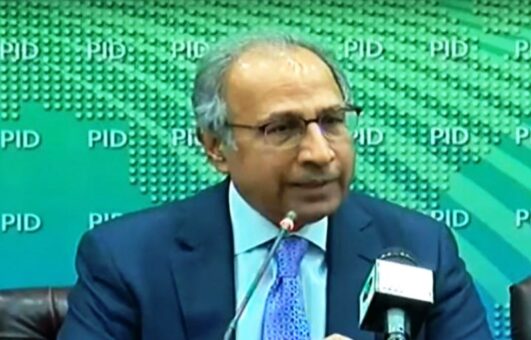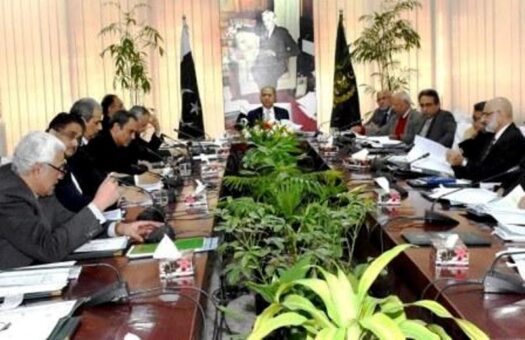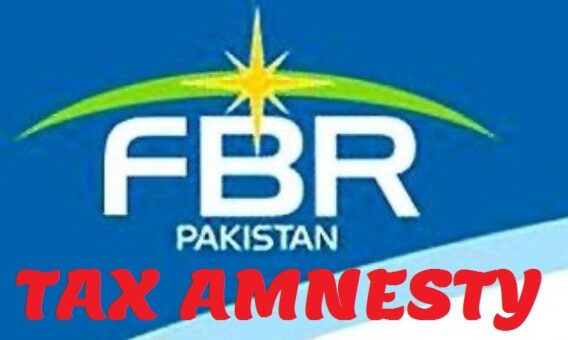ISLAMABAD: The government is considering privatization of big entities such as National Bank of Pakistan (NBP) and State Life Insurance Corporation for better results.
Addressing a news conference in Islamabad on Sunday Prime Minister’s Advisor on Finance Dr. Abdul Hafeez Shaikh said that the government had begun to focus on improving the performance of institutions which were not properly functioning and have made decisions in this regard.
The organizations which the public sector is unable to run will be handed over to the private sector in a transparent manner. So we have injected new energy into privatization.
New companies have come forth and expressed their interest in privatization and their advertisements have been placed. We aim at fast-tracking these developments so productivity is increased.
Furthermore, for state-owned companies which need to be revamped, an organization ‘Sarmaya Pakistan’ has been activated and 20 companies have been selected for restructuring on a fast-track basis.
Shaikh also said that electricity distribution companies where many problems have arisen out of operating under the state will also be prepared for privatization.
He said that PTI government had succeeded in reducing the circular debt to less than Rs10 billion rupees.
He said when PTI government came into power the country was heading towards bankruptcy, but under the objective of economic stability, a number of steps were taken to control our Dollar Reserves.
The advisor said government expenses were reduced through austerity measures and current account deficit was also reduced over 70 percent.
Dr Hafeez Shaikh said six hundred thousand additional tax payers were registered. He said a new system has been introduced since 23rd of the last month under which speedy refunds are given to the business community. Now, refunds will be automatically ensured on 16th of every month.
The advisor said the process of privatization has been expedited and state owned enterprises will be restructured on fast track basis to improve their performance.
The advisor said value of rupee has improved resulting in a benefit of Rs246 billion in loans. He said Rs250 billion have been allocated for the development of agriculture sector.
Dr Abdul Hafiz Shaikh said the government fixed the economic growth target of 2.4, which will be achieved easily due to prudent economic policies of the government.
To a question, Dr Abdul Hafeez Shaikh said ease of doing business is top priority of the government.
He said government is providing loans and subsidy to the business community on gas, electricity, due to which exports are on the rise. Businessmen are important for the government, who are vital in provision of jobs. He also made it clear that there was no tax on food items.
The Finance Advisor said the government expects to collect over Rs1000 billion additional revenue through tax and non-tax resources in the current fiscal year. He said Rs140 billion have been received from two cellular companies and Rs370 billion is expected to be received in future from other resources.
He said the economy of the country is rapidly moving toward stability due to effective policies of the government and economic indicators are positive as stock market and value of rupee are stable.




